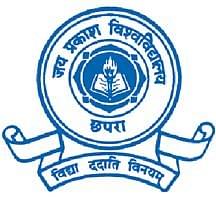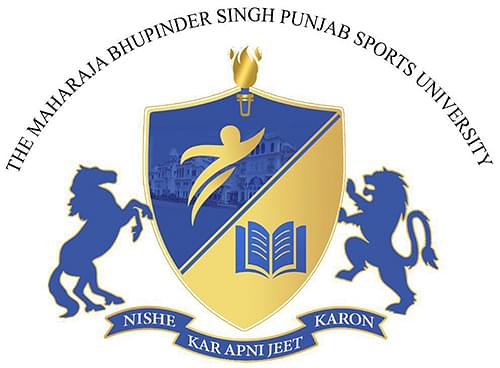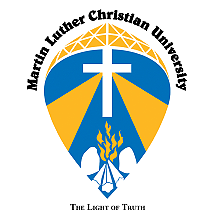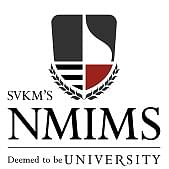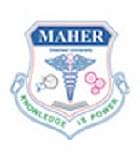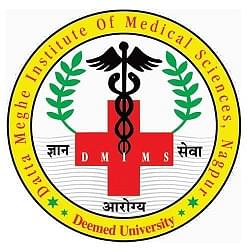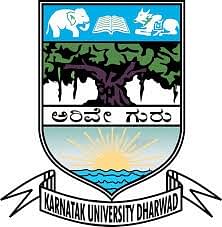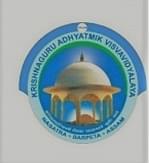Introduction:
The M.D. program in
Acupuncture and Electro-Medicine at top universities in Jaipur offers a
comprehensive curriculum that integrates traditional healing practices with
modern medical techniques. This program aims to train healthcare professionals
in the application of acupuncture, electro-medicine, and other complementary
therapies to promote health and wellness. With a focus on holistic care and
evidence-based practice, students learn to address a wide range of health
conditions and enhance patient outcomes.
Career
Opportunities:
1.
Acupuncturist:
·
Graduates can work as
licensed acupuncturists, providing acupuncture treatments to patients in
various settings such as private clinics, wellness centers, and hospitals.
·
Acupuncturists use thin
needles to stimulate specific points on the body, aiming to alleviate pain,
reduce inflammation, and promote overall well-being.
2.
Electro-Medicine
Specialist:
·
Electro-medicine
specialists specialize in the use of electrical stimulation for therapeutic
purposes.
·
They may administer
treatments such as transcutaneous electrical nerve stimulation (TENS),
electro-acupuncture, or microcurrent therapy to manage pain, improve
circulation, and facilitate tissue healing.
3.
Holistic
Health Practitioner:
·
Graduates can work as
holistic health practitioners, offering a range of complementary therapies
including acupuncture, electro-medicine, herbal medicine, and dietary
counseling.
·
They focus on treating
the whole person, addressing physical, emotional, and spiritual aspects of
health to promote overall wellness.
4.
Pain
Management Specialist:
·
With specialized
training in acupuncture and electro-medicine, graduates can specialize in pain
management.
·
They may work in pain
clinics, rehabilitation centers, or integrative medicine practices,
collaborating with other healthcare professionals to develop comprehensive
treatment plans for patients with chronic pain conditions.
5.
Researcher
and Educator:
·
Some graduates may
pursue careers in research and education, contributing to the advancement of
knowledge in the field of acupuncture and electro-medicine.
·
They may work in academic
institutions, research organizations, or healthcare policy institutes,
conducting studies, publishing research papers, and teaching future generations
of healthcare professionals.
Admission
Process:
1.
Eligibility
Criteria:
·
Candidates must have completed
their Bachelor of Medicine and Bachelor of Surgery (MBBS) or an equivalent
medical degree from a recognized institution.
·
A minimum aggregate
score in undergraduate medical studies may be required for eligibility.
2.
Entrance
Exam:
·
Some universities may
conduct entrance exams to assess candidates' aptitude and suitability for the
M.D. program in Acupuncture and Electro-Medicine.
·
The entrance exam may
include multiple-choice questions covering topics related to acupuncture,
electro-medicine, and basic medical sciences.
3.
Application
Submission:
·
Obtain the application
form from the best jaipur university's admissions office or website.
·
Fill out the application
form accurately and completely, providing all required information.
4.
Document
Submission:
·
Submit attested copies
of educational transcripts, internship completion certificate, and other
relevant documents along with the application form.
·
Additionally, candidates
may need to submit proof of identity, passport-sized photographs, and any other
documents specified by the university.
5.
Entrance
Exam and Interview:
·
Shortlisted candidates
may be called for an entrance exam and/or interview to assess their knowledge,
skills, and suitability for the program.
·
The interview may
include questions about the candidate's academic background, professional
experience, and motivation for pursuing the M.D. program.
6.
Admission
Offer:
·
Successful candidates
will receive an offer of admission from the affordable jaipur university.
·
The offer letter will
specify the terms and conditions of admission, including the program start
date, tuition fees, and registration process.
7.
Fee
Payment and Enrollment:
·
Pay the tuition fees and
any other applicable fees as per the Jaipur university's fee structure.
·
Complete the enrollment
process by submitting the required documents and undertaking the necessary
formalities .
The M.D. program in
Acupuncture and Electro-Medicine at top universities in Jaipur offers
healthcare professionals an opportunity to specialize in holistic healing
modalities that integrate Eastern and Western medical traditions. Graduates of
this program are equipped with the knowledge, skills, and clinical experience
to provide effective and compassionate care to patients with a wide range of
health conditions. With diverse career opportunities in clinical practice,
research, education, and healthcare administration, graduates can make
meaningful contributions to the field of integrative medicine while promoting
health and wellness in their communities.
M.D. (Doctor of Medicine in Acupuncture and
Electro-Medicine): Registration Process and Syllabus
Registration
Process:
1.
Application
Form Acquisition:
·
Obtain the application
form for the M.D. program in Acupuncture and Electro-Medicine from the
university's official website or admissions office.
·
Alternatively, the
application form may be available for download online or in-person at
designated locations.
2.
Form
Completion:
·
Fill out the application
form accurately and completely, providing all required personal and educational
details.
·
Ensure that all
mandatory fields are filled, and attach any necessary documents as specified in
the application instructions.
3.
Document
Submission:
·
Gather the required
documents, including:
·
Educational transcripts
or mark sheets from previous academic qualifications.
·
Internship completion
certificate (if applicable).
·
Identification proof
(such as Aadhar card, passport, or driver's license).
·
Passport-sized
photographs.
·
Any other documents
specified by the university.
4.
Application
Fee Payment:
·
Pay the application fee
through the designated payment mode as specified by the university.
·
Retain the payment
receipt as proof of fee payment, as it may be required during the registration
process.
5.
Submission
of Application:
·
Submit the completed
application form along with the required documents and fee payment receipt to
the university's admissions office.
·
Ensure that the
application is submitted before the specified deadline to be considered for
admission.
6.
Admission
Review:
·
The university will
review the applications based on eligibility criteria and academic
qualifications.
·
Shortlisted candidates
may be called for further evaluation, such as entrance exams, interviews, or
counseling sessions.
7.
Merit
List and Counseling:
·
After the evaluation
process, the university will prepare a merit list of selected candidates.
·
Shortlisted candidates
will be informed about counseling sessions, during which they can choose their
preferred specialization and complete the admission formalities.
8.
Document
Verification:
·
Shortlisted candidates
will be required to submit original documents for verification during the
counseling process.
·
Once documents are
verified, candidates will be issued provisional admission letters.
9.
Fee
Payment and Enrollment:
·
Pay the tuition fees and
any other applicable fees as per the Jaipur university's fee structure.
·
Complete the enrollment
process by submitting the required documents and undertaking the necessary formalities.
10. Orientation Program:
·
Attend the orientation
program organized by the university to familiarize yourself with the campus,
faculty, facilities, and academic policies.
Syllabus:
1.
Introduction
to Acupuncture:
·
History, philosophy, and
principles of acupuncture.
·
Acupuncture points,
meridians, and techniques of needling.
2.
Electro-Medicine
Fundamentals:
·
Basics of
electro-medicine and electrical stimulation therapies.
·
Use of
electro-acupuncture, TENS, and microcurrent therapy in clinical practice.
3.
Anatomy
and Physiology:
·
Detailed study of human
anatomy and physiology.
·
Understanding the
anatomical structures and physiological functions relevant to acupuncture and
electro-medicine.
4.
Pathophysiology:
·
Common diseases and
disorders encountered in clinical practice.
·
Pathophysiological
mechanisms and manifestations relevant to acupuncture treatment.
5.
Clinical
Diagnosis and Assessment:
·
Methods of clinical
diagnosis and patient assessment in acupuncture and electro-medicine.
·
Pulse diagnosis, tongue
diagnosis, and other traditional diagnostic techniques.
6.
Acupuncture
Treatment Modalities:
·
Different acupuncture
treatment modalities and their indications.
·
Techniques such as
moxibustion, cupping, and gua sha.
7.
Electro-Medicine
Applications:
·
Clinical applications of
electro-medicine in pain management, neurological disorders, and
rehabilitation.
·
Protocols for
administering electro-acupuncture and other electrotherapy modalities.
8.
Research
Methodology and Evidence-Based Practice:
·
Basics of research methodology
and study design.
·
Critical appraisal of
research literature and application of evidence-based practice in acupuncture
and electro-medicine.
9.
Ethics
and Professionalism:
·
Ethical considerations
in acupuncture practice, including patient confidentiality, informed consent,
and professional boundaries.
·
Professionalism,
communication skills, and inter-professional collaboration.
10. Clinical Practicum and Internship:
·
Supervised clinical
training in acupuncture and electro-medicine under the guidance of experienced
practitioners.
·
Hands-on experience in
patient assessment, treatment planning, and therapy administration.
The registration process
for the M.D. program in Acupuncture and Electro-Medicine involves completing
the application form, submitting required documents, and attending counseling
sessions for course selection. The comprehensive syllabus covers foundational
knowledge in acupuncture, electro-medicine, anatomy, physiology, and clinical
practice. Graduates emerge as skilled practitioners equipped to provide
holistic healthcare solutions to patients using acupuncture and
electro-medicine techniques. With a strong emphasis on evidence-based practice
and ethical conduct, students are prepared to excel in their professional
careers and contribute to the advancement of integrative medicine.





